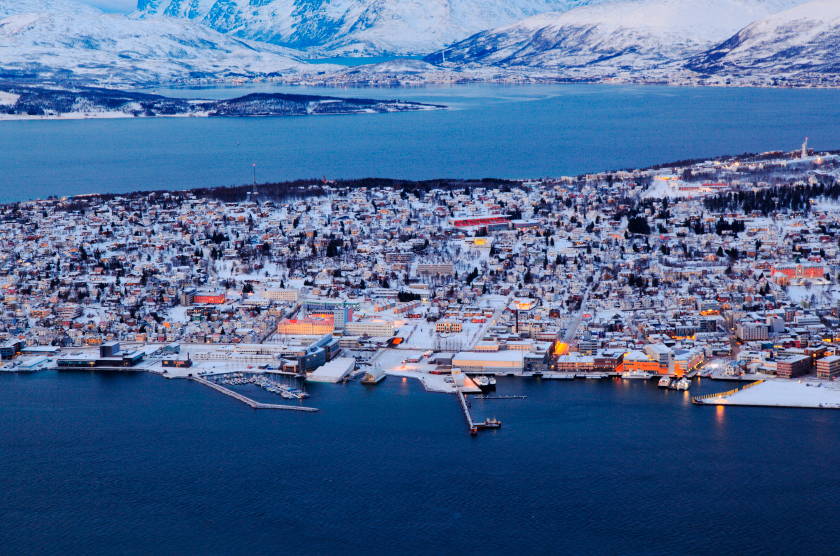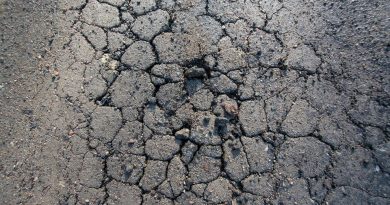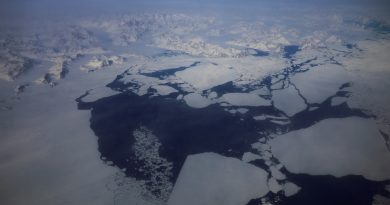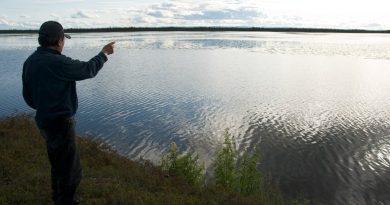Canada stresses need for cooperation at Arctic Frontiers conference

Canada wants to ensure that the Arctic remains a conflict-free zone and avoid militarization of the region, the country’s Minister of Northern Affairs, Dan Vandal, told participants of the virtual Arctic Frontiers conference on Wednesday.
“We know that there is increased interest in the Arctic and competition from other Arctic and non-Arctic states, as sea-ice continues to melt and Arctic waters become more open, like the Northwest Passage,” Vandal said, addressing the 15th edition of the conference in Tromso, Norway via a video link from Ottawa.
This poses a number of new environmental, political, and security challenges, on which Canada will continue to cooperate and collaborate with its domestic and international partners, Vandal added.
“While the Canadian Arctic has historically been — and continues to be — a region of stability and peace, growing competition and increased access brings safety and security challenges to which Canada must be ready to respond,” Vandal said.
Canada’s Minister for Northern Affairs 🇨🇦Dan Vandal🇨🇦 is at #ArcticFrontiers! @Min_Northern says #Arctic states must collaborate to ensure
✅Economic prosperity
✅Environmental stewardship
✅Food security
in conversation with 🇬🇱@GreenlandMFA and 🇮🇸@OceanCluster. #BlueEconomy pic.twitter.com/sSI57Czkeo— Canada in the Arctic (@CanadaArctic) February 3, 2021
The theme of this year’s conference was “Building Bridges”. The four-day conference, which wraps up today, focused on four areas: public health, coastal operations, digitalisation, and green development goals.
Vandal said the theme of the conference is very appropriate and the COVID-19 pandemic has only accentuated the vulnerabilities and widened the gaps in the North.
Only by working together, in partnership, can circumpolar countries “manage this world of uncertainties,” Vandal said.
“And our countries face common issues: COVID-19, climate change, housing shortages, addictions and suicide, and out migration that drains the North of its most valuable resources: the people who live there – in particular, youth,” he said.
“Together, we need to explore these challenges and identify locally-led solutions, guided by Indigenous Knowledge and based on science and solid evidence – solutions by Northerners, for Northerners.”
The last panel of this year’s #ArcticFrontiers with PMs 🇳🇴@erna_solberg 🇸🇪@SwedishPM 🇫🇮@MarinSanna 🇮🇸@katrinjak. 🇨🇦Canada🇨🇦continues to work with #Arctic partners, #Indigenous people and #Youth to address challenges and opportunities together. pic.twitter.com/7142k5TiOm
— Canada in the Arctic (@CanadaArctic) February 4, 2021
The conference, which usually brings several thousand participants to Tromso, had to be held online this year because of the COVID-19 pandemic.
High profile participants included conference host, Norwegian Prime Minister Erna Solberg, Finnish Prime Minister Sanna Marin, Swedish Prime Minister Stefan Løfven, Icelandic Prime Minister Katrín Jakobsdóttir, EU Commissioner for Environment, Oceans and Fisheries Virginijus Sinkevičius and U.S. Senator for Alaska Lisa Murkowski.
Related stories from around the North:
Arctic: NATO’s Arctic dilemma: Two visions of the Arctic collide as NATO and Russia flex muscles, Eye on the Arctic
Canada: Experts warn of potentially ‘deadly’ great power games in the Arctic, Radio Canada International
China: China, Russia singled out in new U.S. Arctic defense strategy, Eye on the Arctic
Denmark: Pompeo to talk Arctic at upcoming meeting with Danish Foreign Minister, Eye on the Arctic
Iceland: Nordics should aim for common approach to China’s Arctic involvement says report, Eye on the Arctic
Norway: Increase in NATO scrambled jets from Norway, The Independent Barents Observer
Russia: Threat of military conflict in the Arctic is ‘relatively low,’ says top Russian diplomat, Eye on the Arctic
Sweden: Sweden’s FM calls for more EU involvement in Arctic as country hosts EU Arctic Forum, Radio Sweden
United States: New U.S. Arctic strategy focuses on ‘day-to-day competition’ with Russia and China, Eye on the Arctic



